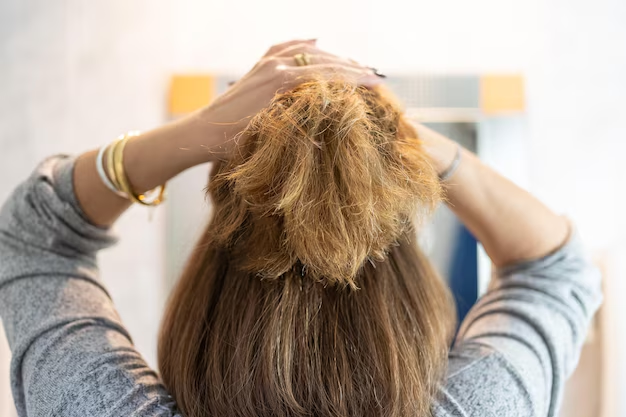Managing Scalp Psoriasis: Effective Strategies for Long-Term Relief
Dealing with scalp psoriasis can be a daunting challenge. Imagine waking up each day worried about what's happening beneath your hair—those uninvited guests, the flaky scales, and constant itching. It’s truly frustrating. But despair not. Exploring a wide range of avenues can provide you with both hope and tangible results. Let's dive into a detailed roadmap for managing scalp psoriasis with the goal of achieving effective, long-term relief.
Understanding Scalp Psoriasis
What is Scalp Psoriasis? Scalp psoriasis is a common skin condition where skin cells multiply much faster than normal, leading to dandruff-like, red patches with silvery scales on your scalp. It can extend to your forehead, neck, or behind the ears if not addressed.
Why Does It Happen? The exact cause of scalp psoriasis isn’t completely understood, but it involves a combination of immune system functions, genetics, and environmental factors. Genetics play a pivotal role—if it runs in your family, your odds increase.
Identifying Symptoms and Triggers
Common Symptoms:
- Itching and redness: Psoriasis causes significant discomfort and can sometimes manifest as severe itching.
- Flaky skin: Silver-white scales are a common characteristic.
- Dryness: It leaves your scalp dry, which may worsen the condition over time.
Potential Triggers:
- Stress: Major trigger for flare-ups.
- Skin injuries: Sunburn or scratches can exacerbate symptoms.
- Cold, dry weather: Psoriasis loves the cold and dry atmosphere; symptoms tend to worsen in winter.
- Hormonal changes: Especially pertinent for women, such as during pregnancy or menopause.
Practical Approaches for Managing Scalp Psoriasis
1. Topical Treatments:
- Medicated Shampoos: Use sulphur-based or tar shampoos to combat flare-ups.
- Corticosteroid Lotions: Help reduce inflammation and itching.
2. Light Therapy (Phototherapy):
- UV Light Exposure: Helps slow down the rapid growth of skin cells associated with psoriasis. Be cautious about exposure duration.
3. Systemic Medications:
- This involves oral or injected medications that target internal factors causing overproduction of skin cells. Only needed in severe cases and must be discussed with a healthcare provider.
Holistic and Lifestyle Interventions
1. Diet and Nutrition:
- Anti-inflammatory Diet: Incorporate fruits, vegetables, and omega-3 fatty acids, which may help reduce inflammation.
- Hydration: Drinking enough water ensures a less dry scalp, which aids in managing symptoms.
2. Stress Management:
- Mindfulness and Relaxation Techniques: Yoga and meditation can significantly cut down stress levels, thereby reducing flare-ups.
3. Gentle Hair Care Routine:
- Regular Washing: Cleansing daily with suitable shampoos helps manage scaling.
- Avoid scratching: This often deepens damage and escalates itchiness.
Natural Remedies to Explore
Looking for a natural touch in managing your condition? Here are some go-to remedies:
- Aloe Vera Gel: Known for its soothing properties, it can help calm itching.
- Apple Cider Vinegar: Diluted in water, it can relieve itching and aid in removing scales.
Note: Always conduct a patch test before using a new natural remedy to prevent allergic reactions.
Developing a Long-Term Strategy
1. Tailored Treatment Plan:
- Each individual’s situation is unique, requiring a personalized care system often developed with healthcare guidance.
2. Joining Support Groups:
- Emotional and psychological benefits come from sharing experiences, insights, and encouragement with others facing similar issues.
Staying Informed and Adapting
The world of medical and alternative treatments is ever-evolving. Stay informed through reliable health channels to explore new methods or modifications in care that may enhance your regimen.
Key Takeaways for Your Journey
Embarking on the journey to manage scalp psoriasis involves both commitment and optimism. While a permanent cure remains elusive, understanding and managing an array of interventions can bring about long-term relief and a better quality of life.
Quick Summary of Tips and Takeaways 📌
- Topical Treatments: Use medicated shampoos and corticosteroids for relief.
- Phototherapy: Consider safe UV light treatments.
- Systemic Treatments: For severe cases, under professional care.
- Lifestyle Adjustments: Maintain a balanced diet and manage stress effectively.
- Natural Remedies: Explore options like aloe vera and apple cider vinegar.
- Stay Informed: Keep abreast of new treatments and strategies.
- Join Communities: Support groups offer empathy and advice.
- Commitment to Routine: Consistency in your approach ensures better management.
Remember, empowerment begins with knowledge, understanding, and valuing your unique path through the intricate landscape of managing scalp psoriasis. 🌟

